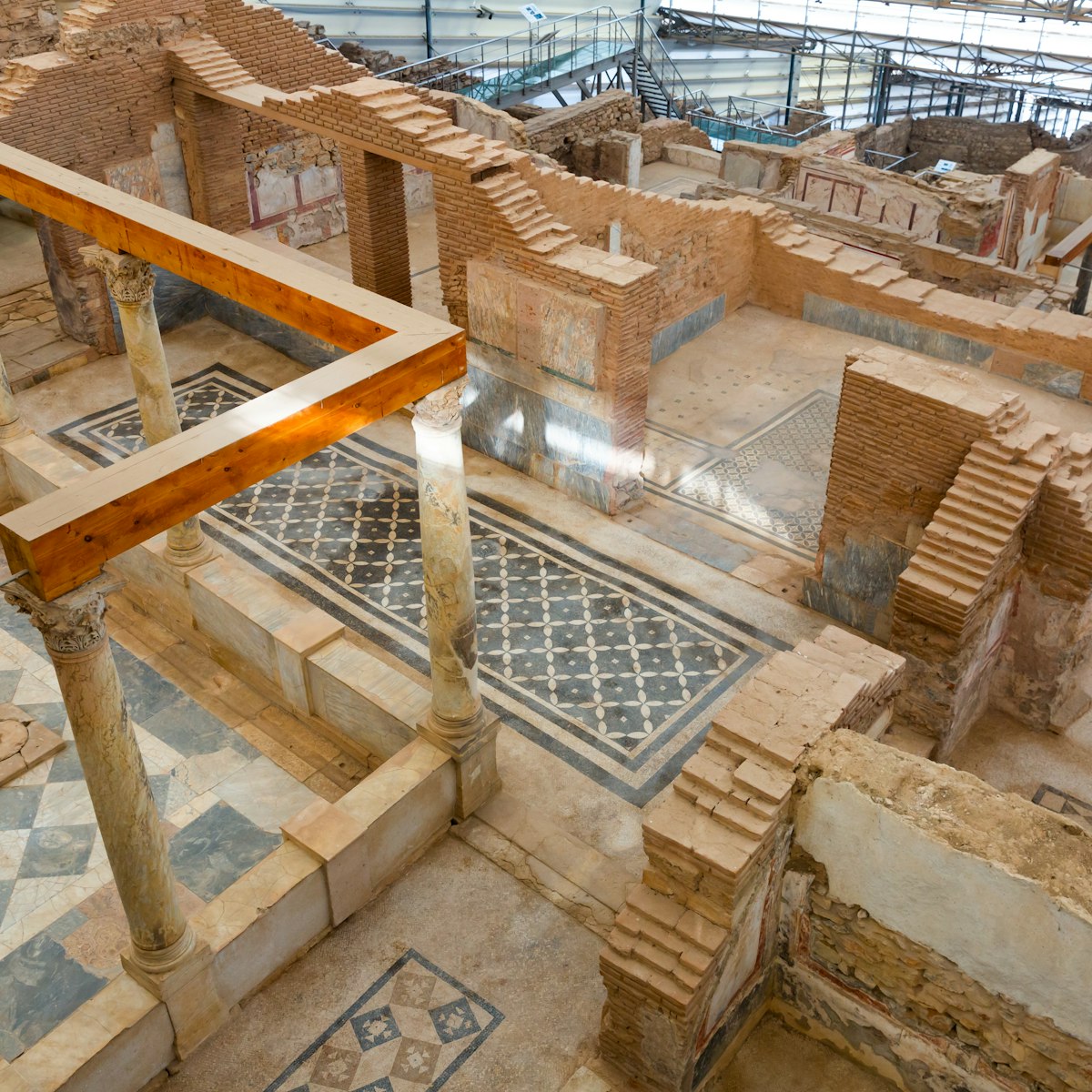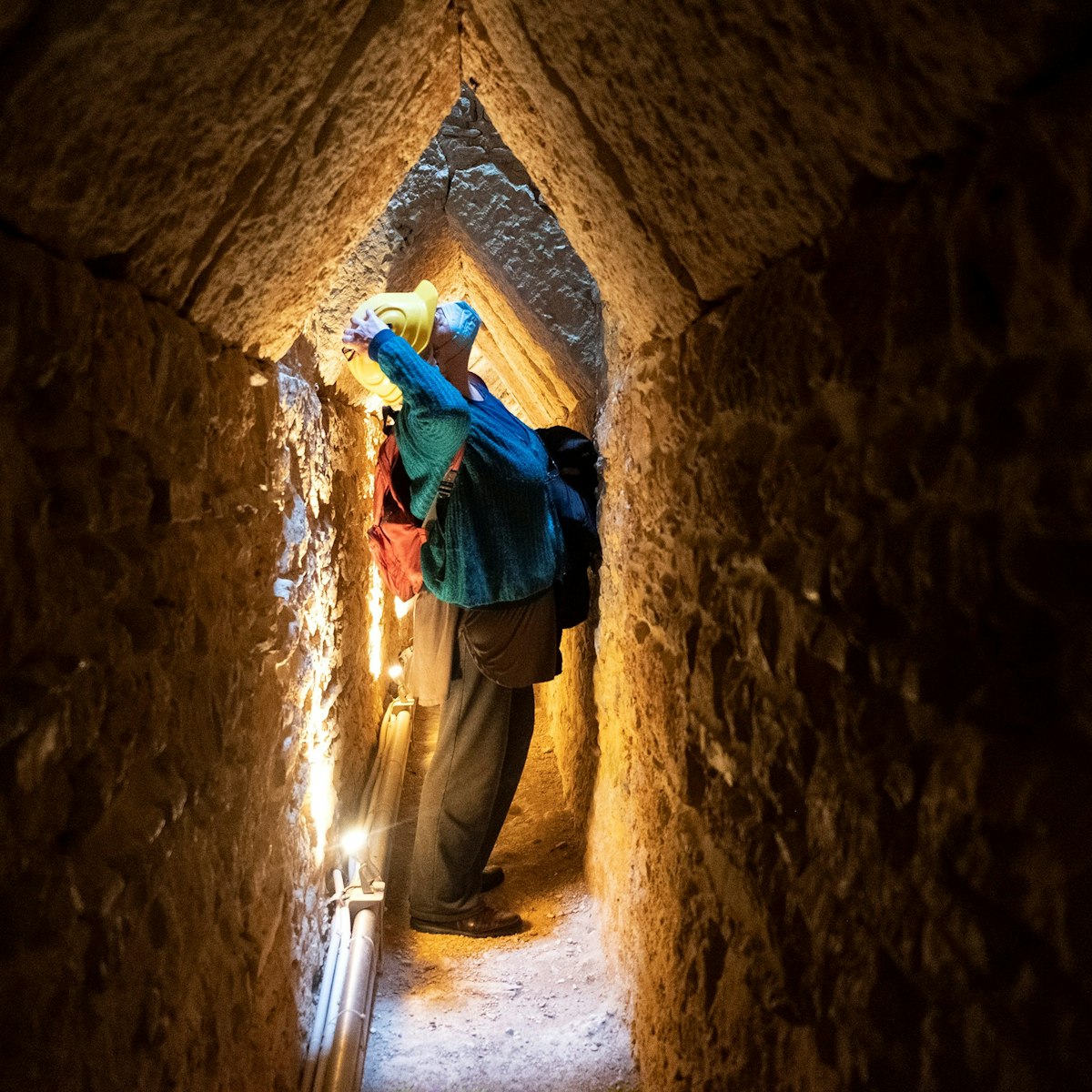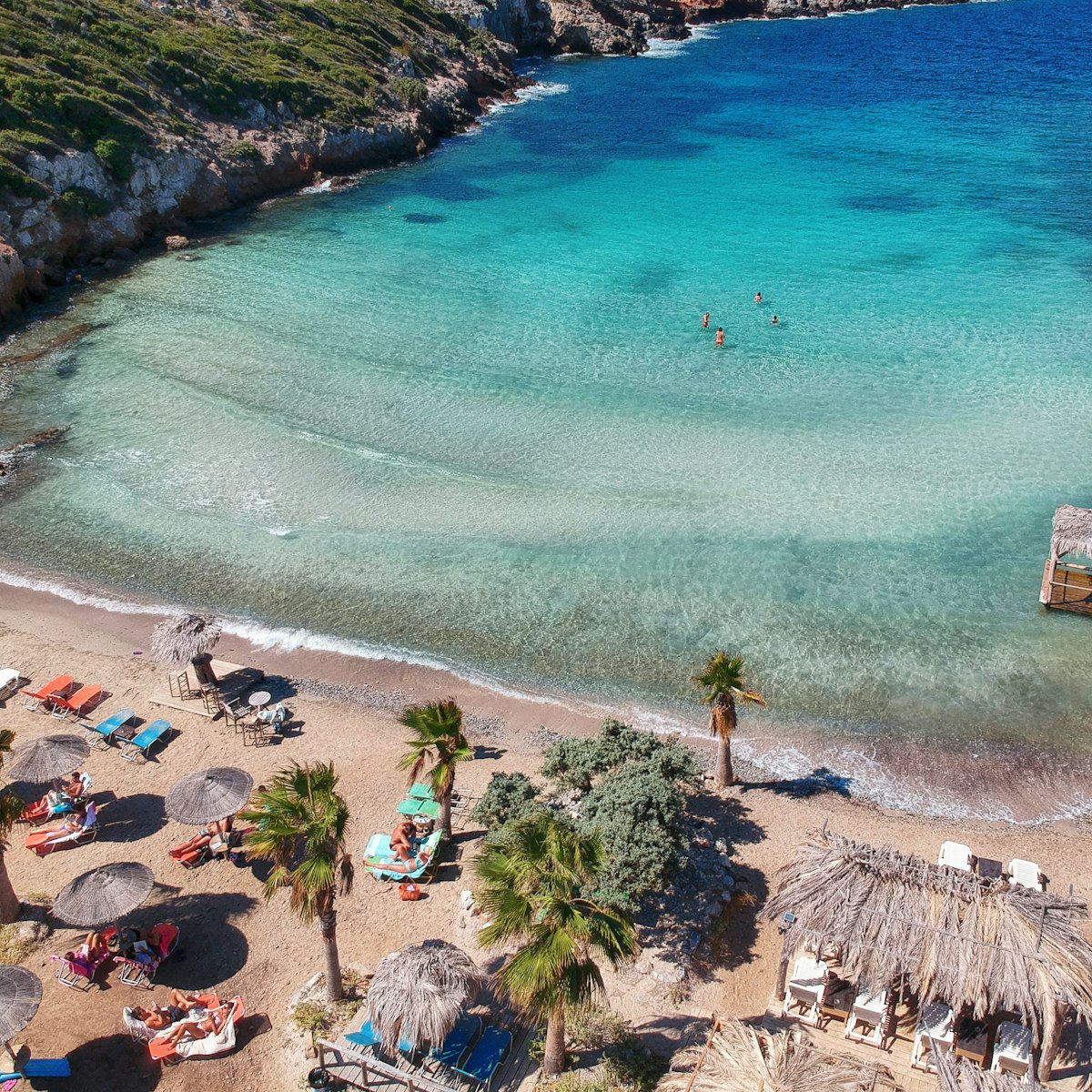Two of six original Doric columns mark the entrance to the ruined Prytaneum, one of the most important civic structures in Ephesus. Within and dedicated to the goddess of the hearth, the Temple of Hestia contained the sacred flame of the city that was never allowed to go out. This is also where religious and civil officials received official guests.
Here and elsewhere in Ephesus, note the differences between the Ionian Greeks' heavily ornamented, spiralling columns, and their smooth, unadorned Roman counterparts. Both coexist in tandem across the site, due to ancient recycling and modern relocations. A similar difference is notable in arches: the genius of single-material, harmoniously balanced Ionian Greek arches, and the pragmatic use of mortar by the Romans.





